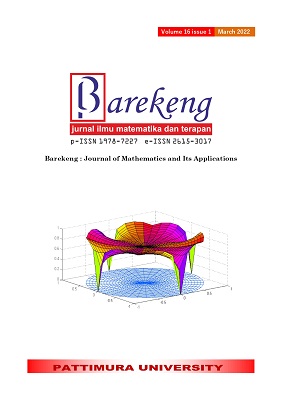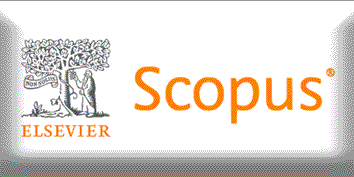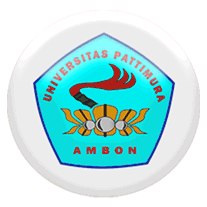ANALYSIS OF THE IMPACT OF COVID IN THE SECOND YEAR ON INCOME OF WORKERS IN WEST JAVA WITH MULTINOMIAL LOGISTIC REGRESSION
Abstract
The COVID-19 pandemic that hit Indonesia had a huge impact on the economy. The long period of restriction of population mobility impacted the changes of people's income. West Java is the province with the most workers affected by this pandemic. The income of workers in West Java in the first five months of the pandemic decreased by 50.1%. The existence of these problems shows that an analysis of the impact of covid on changes in worker income is very necessary. This study aims to determine the factors that have a significant effect on changes in workers' income in West Java. Based on the results of the multinomial logistic model suitability test, it was found that there was no difference in the model between the observed results and the predicted results for male workers, therefore the model could be used. In the second year of the covid pandemic, the opportunity for a person's income to decrease in West Java is still very high, at 0.9891. The factors with the highest opportunities that affect income changes in the reduced category are self-employed employment status, changes in work hours, the implementations of WFH, and workers working at terminal/station/airport locations.
Downloads
References
A. Syahadati, N. C. Lengkong, O. Safitri and S. Machsus, “Analisis Sentimen Penerapan PSBB di DKI Jakarta dan Dampaknya Terhadap Pergerakan IHSG,” Jurnal TEKNOINFO, vol. 15, no. 1, pp. 20-25, 2021.
S. Ayuni and et.al, “Analisis Hasil Survey Dampak Covid-19 Terhadap Pelaku Usaha,” BPS RI, Jakarta, 2020.
A. Andriyati, E. Rohaeti and I. Kamila, “Regresi Logistik Multinomial untuk Menganalsis Dampak Covid Terhadap Perubahan Pendapatan Pekerja di Jawa Barat,” in Konferensi Nasional Mathematic & Statistics Expo, Bengkulu, 2021.
E.-H. M. Abdalla, “AnApplicationonMultinomial Logistic Regression Model,” Pakistan Journal of Statistics and Operation Research, vol. VIII, no. 2, pp. 271-291, 2012.
B. U. Hermosilla, H. d. l. Fuente-Mella, C. Elórtegui-Gómez and M. Fonseca-Fuentes, “Multinomial Logistic Regression to Estimate and Predict the Perceptions of Individuals and Companies in the Face of the COVID-19 Pandemic in the Ñuble Region, Chile,” Sustainability , vol. 12, no. 22, p. 9553, 2020.
Fahmeir L. and Tutz G, Multivariate Statistical Modelling Based on Generalized Linier Models, New York: John Willey and Sons, 1994.
N. a. Abd Aziz, Z. Ali, N. Mohd Nor, A. Baharum and M. Omar, “Modeling multinomial logistic regression on characteristics of smokers after the smoke-free campaign in the area of Melaka,” in AIP Conference Proceedings, 2016.
R. E. Walpole, Pengantar Statistika Edisi Ke-3, Jakarta: Gramedia, 1995.
J. D. W. Hosmer, S. Lemeshow and R. X. Sturdivant, Applied Logistic Regression, Canada: John Wiley & Sons, 2013.
A. Abdillah, A. Sutisna, I. Tarjiah, D. Fitria and T. Widiyarto, “Application of Multinomial Logistic Regression to analyze learning difficulties in statistics courses,” Journal of Physics: Conference Series, vol. 1490, pp. 1-6, 2020.
Agresti, Categorical Data Analysis 3th edition, New York: John Willey and Sons Inc, 2013.
M. Tulong, C. Mongi and M. Mananohas, “Regresi Logistik Multinomial Untuk Menentukan Faktor-Faktor yang Mempengaruhi Pilihan Perguruan Tinggi Pada Siswa SMA dan SMK di Pulau Karakelang Kabupaten Kepulauan Talaud,” DeCartesian, vol. 7, no. 2, pp. 90-94, 2018.
M. W. Fagerland and D. W. Hosmer, “A generalized Hosmer–Lemeshow goodness-of-fit test for multinomial logistic regression models,” The Stata Journal, vol. 12, no. 3, p. 447–453, 2012.
N. A. Mohamad, Z. Ali and N. M. Noor, “Multinomial logistic regression modelling of stress level among secondary school teachers in Kubang Pasu District, Kedah,” in AIP Conference Proceedings, 2016.
N. I. Putri and Budyanra, “Penarapan Regresi Logistik Ordinal dengan Proporsional Odds Model Pada Determinan Tingkat Stres Akademik Mahasiswa,” in Seminar Nasional Official Statistics , Jakarta, 2019.
Authors who publish with this Journal agree to the following terms:
- Author retain copyright and grant the journal right of first publication with the work simultaneously licensed under a creative commons attribution license that allow others to share the work within an acknowledgement of the work’s authorship and initial publication of this journal.
- Authors are able to enter into separate, additional contractual arrangement for the non-exclusive distribution of the journal’s published version of the work (e.g. acknowledgement of its initial publication in this journal).
- Authors are permitted and encouraged to post their work online (e.g. in institutional repositories or on their websites) prior to and during the submission process, as it can lead to productive exchanges, as well as earlier and greater citation of published works.






1.gif)



